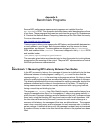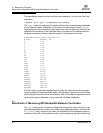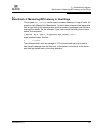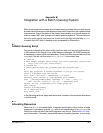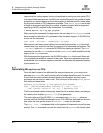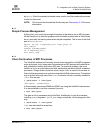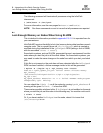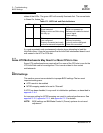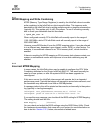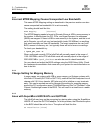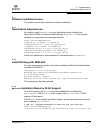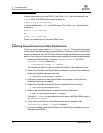
B – Integration with a Batch Queuing System
A Batch Queuing Script
IB6054601-00 D B-3
Q
by mpirun.Each line consists of a node name, a colon, and the number of processes
to start on that node.
NOTE: This is one of two formats that the file may use. See section 3.5.6 for more
information.
B.1.3
Simple Process Management
At this point, your script has enough information to be able to run an MPI program.
All that remains is to start the program when the batch system tells us that we can
do so, and notify the batch system when the job completes. This is done in the final
part of
batch_mpirun:
mpirun -np $np -m $mpihosts_file "$mpi_prog" $@
exit_code=$?
scancel ${SLURM_JOBID}
rm -f $mpihosts_file
exit $exit_code
B.1.4
Clean Termination of MPI Processes
The InfiniPath software will normally ensure clean termination of all MPI programs
when a job ends, but in some rare circumstances an MPI process will remain alive,
and potentially interfere with future MPI jobs. To avoid this problem, the usual
solution is to run a script before and after each batch job which kills all unwanted
processes. QLogic does not provide such a script, but it is useful to know how to
find out which processes on a node are using the InfiniPath interconnect. The easiest
way to do this is through use of the fuser command, which is normally installed in
/sbin.Run as root:
# /sbin/fuser -v /dev/ipath
/dev/ipath: 22648m 22651m
In this example, processes 22648 and 22651 are using the InfiniPath interconnect.
It is also possible to use this command (as root):
# lsof /dev/ipath
This gets a list of processes using InfiniPath. Additionally, to get all processes,
including stats programs, ipath_sma, diags, and others, run the program in this
way:
# /sbin/fuser -v /dev/ipath*
losf can also take the same form:
# lsof /dev/ipath*



